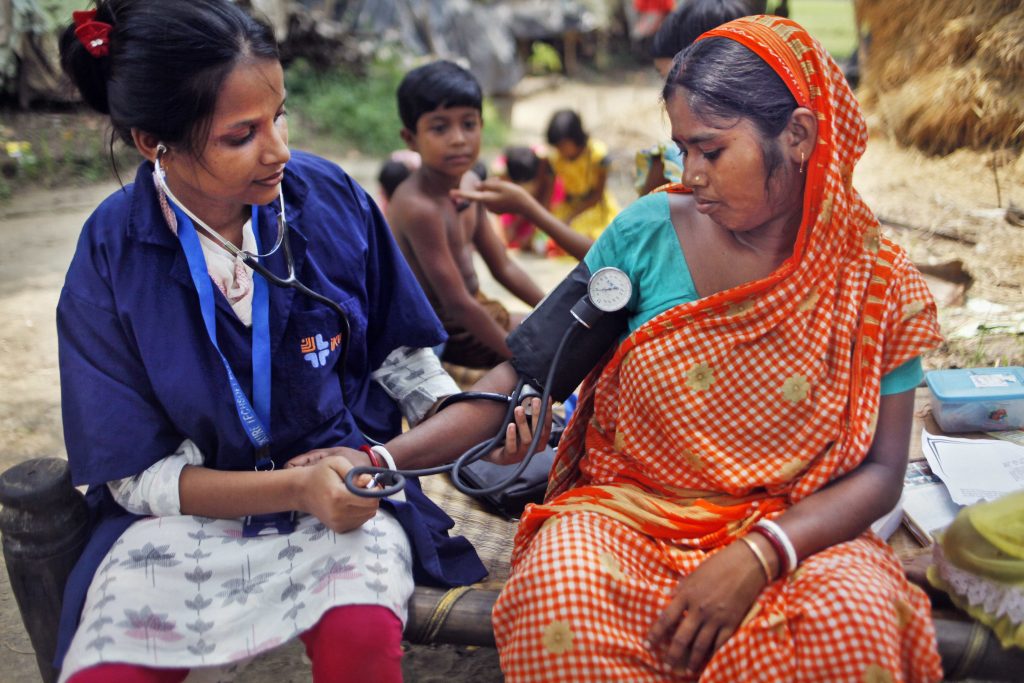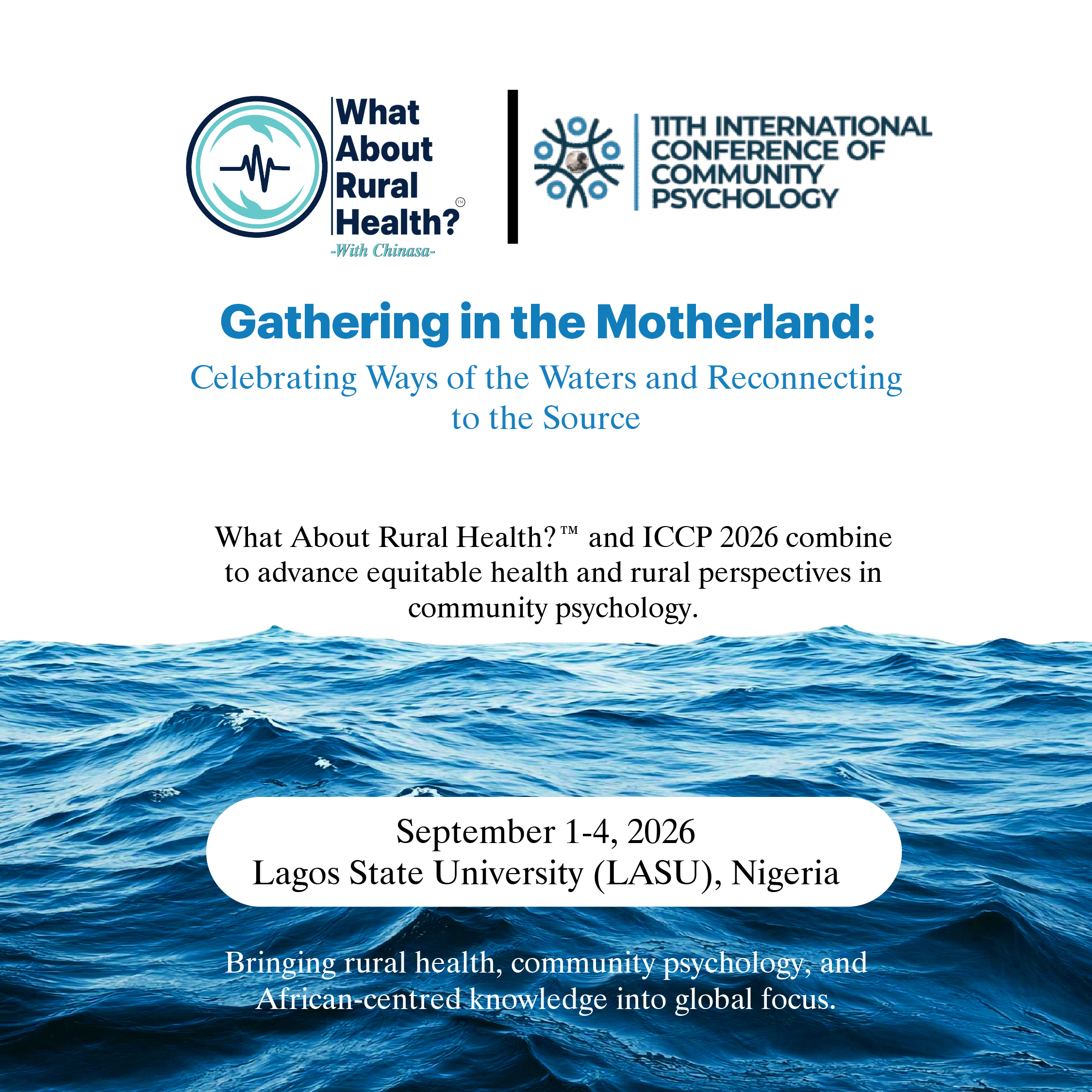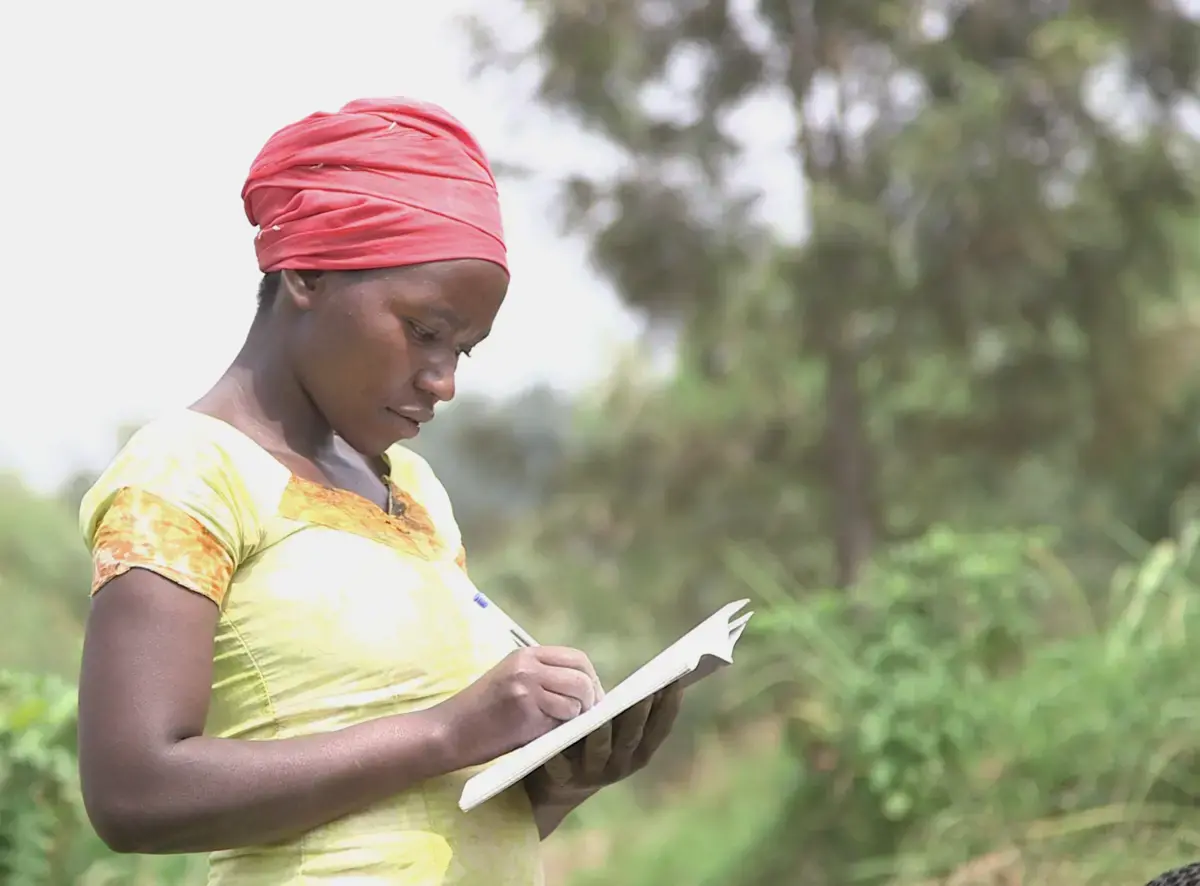By Faridah Abdullahi
An Introduction
Before embarking on this journey to understand rural health, I had asked myself why rural health was important or even worth understanding! I mean, we all know the importance of healthcare in general. But why would rural health be singled out and given particular attention?
Before we address all our queries, we have to first understand, or at least have a basic definition of what rural health entails. ScienceDirect.com defines rural health as “the health systems and services available in rural communities, which are often characterised by geographic challenges, lower population density, and unique demographic factors”. In other words, it encompasses the unique challenges and healthcare needs of populations living in rural areas, where access to medical facilities and professionals is often limited.
Now, you may also ask, like I did, “But aren’t rural dwellers generally healthier than those in the urban areas? After all, they have access to fresh food, clean air, and a sedentary lifestyle, amongst others. Like me, you may also be shocked to learn that studies have shown that, on average, chronic diseases are more prevalent in rural areas than in cities. They’re not only more common but also linked to poorer overall health, shorter life expectancy, and more frequent, yet often avoidable, hospital visits. The situation is made worse by the influence of social determinants of health, limited health literacy, and lifestyle patterns that can undermine well-being.
Rural Health Challenges
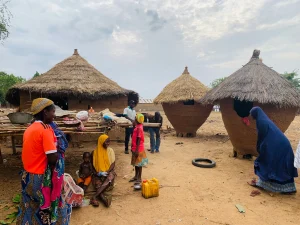
This brings us to the next question: if rural health indicators paint a less-than-positive picture, what specific healthcare challenges are these communities facing? Rural residents often encounter certain barriers that limit their ability to access the care they need. A 1993 National Academies report, “Access to Healthcare in America”, defines access as “the timely use of personal health services to achieve the best possible health outcomes.” Thus, for healthcare to be deemed accessible, not only must the healthcare services be available, but they must also be attainable on time.
Inadequate infrastructure in rural areas is one of the challenges that impede rural healthcare access. In many rural communities, access to quality healthcare is a constant struggle. Hospitals and clinics are limited, and those that do exist often face numerous challenges, including limited funding, outdated or insufficient equipment, and shortages of essential medicines. Basic resources like electricity and clean water are not always guaranteed. The lack of these essentials not only hampers the delivery of medical services but also discourages skilled healthcare workers from serving in these areas, further widening the gap in care.
There is also a shortage of skilled healthcare workers in rural areas. This gap is widened by the steady migration of health professionals to cities or abroad in search of better pay, better working and living conditions, and career growth. Such workforce shortages impact every layer of healthcare delivery, stretching already limited facilities to their limits and leaving communities underserved.
In addition, steep healthcare costs, lack of health insurance, combined with pervasive poverty in rural areas put essential medical services beyond the reach of many. This often forces people to postpone treatment or depend on traditional remedies and self-medication, which can sometimes result in serious health risks.
A lack of health education is another barrier to rural healthcare access. In many rural communities, access to basic health information on topics like nutrition, hygiene, sanitation, vaccinations, and family planning is limited. This knowledge gap often fuels the spread of preventable illnesses and worsens health outcomes. Lower education levels, poverty, and language barriers also contribute to low health literacy, making it harder for individuals to understand medical advice, make informed health choices, or navigate an already complex healthcare system.
Finally, the sheer distance between rural communities and healthcare facilities, combined with poor transportation networks, creates a major barrier to timely medical care. In many cases, patients must travel long stretches to see a doctor, a journey that can be especially difficult for older adults or those without reliable vehicles.
While the above is by no means exhaustive of all the barriers encountered by rural dwellers in accessing healthcare, they are indicative of the widespread problem of inequity in health service delivery and the need to act fast in providing solutions to the challenges of rural healthcare access.
The Way Forward
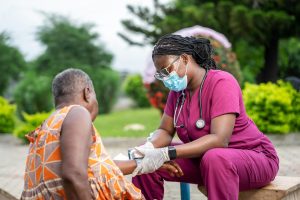
So, what practical solutions can help break down the barriers to healthcare access in rural communities? Tackling the pressing challenges in rural healthcare requires a comprehensive, multi-pronged approach. This means not only strengthening healthcare infrastructure, especially Primary Health Care Centres, but also expanding access to affordable medical services and ensuring a steady supply of skilled health professionals. Equally important is investing in the broader infrastructure that underpins health, such as reliable electricity, good road networks, and safe drinking water, all of which are essential to supporting a functional and resilient rural health system.
Beyond these obvious solutions, there is a wide range of additional measures that can help break down the barriers to healthcare access in rural areas. It must be noted that when it comes to healthcare in rural areas, there is no one-size-fits-all approach. Different communities must be engaged and served according to their specific needs. This is why health education carefully tailored to the realities, culture, and priorities of each community is so essential.
In rural areas, community health initiatives are increasingly being used to bridge healthcare gaps, and because they are developed in collaboration with local leaders, they are tailored to reflect the area’s unique cultural values, traditions, and beliefs. Their strength lies in leveraging the very qualities that define rural life—close-knit social networks, strong family ties, a shared sense of responsibility, and a collective determination to improve community well-being. By building on these inherent assets, rural communities can make real strides in overcoming barriers and advancing health promotion and disease prevention.
The use of mobile health clinics is also a way to bring essential medical services directly to underserved rural populations, reducing travel barriers and improving access to timely care. Mobile health clinics are specially equipped vehicles designed to deliver targeted healthcare services directly to communities. These clinics travel to underserved areas, bringing care to people who might otherwise struggle to access it. The specific treatments and services offered can vary from one mobile clinic to another, depending on its focus and resources.
Another emerging solution to bridging the healthcare gap in rural areas is the use of telemedicine. By enabling remote consultations, diagnoses, and patient monitoring, telemedicine is essential in transforming healthcare access in rural areas. Through digital platforms, patients can connect with providers for routine check-ups, follow-ups, and health education without leaving their communities. This approach not only expands access to care but also boosts patient engagement and reduces the need for costly, time-consuming travel. While virtual appointments cannot fully replace in-person visits, they offer rural patients valuable opportunities to see specialists without long journeys. It must, however, be noted that limited internet connectivity in rural areas remains a major barrier.
In addition to these strategies, exploring innovative financing solutions such as community-based health insurance schemes and public-private partnerships can play a vital role in tackling the healthcare funding challenges faced by rural areas. These approaches can help pool resources, spread risks, and create more sustainable systems for delivering affordable and accessible care to underserved populations.
But why does rural healthcare matter, and why should it be a concern for everyone, from rural residents and healthcare providers to policymakers and even urban dwellers?
Rural health is everyone’s business because it impacts the overall health and well-being of a nation, affects the economy, and reflects broader social and ethical considerations. Strong rural health systems are essential for a nation’s productivity, social stability, and equitable distribution of resources.
As mentioned earlier, healthcare access goes beyond simply having doctors or hospitals nearby. It also involves addressing systemic challenges and the infrastructure that enables effective care delivery. Rural communities face distinct hurdles; thus, strengthening and supporting rural health systems is essential to ensure that everyone, no matter where they live, can access quality care and receive timely treatment. At its core, improving rural healthcare is a matter of equity and fairness, that is, recognising the right of all people to live healthy, dignified lives.
Furthermore, a healthy rural population is a cornerstone of economic development. When people in rural areas enjoy good health, they are better able to participate fully in the workforce, driving productivity and supporting local economies. Healthy communities also tend to attract businesses, industries, and investments, which in turn create jobs and improve living standards.
Finally, healthy rural communities tend to be more vibrant and resilient, with residents who can fully engage in social, economic, and cultural life. When people enjoy better health, they are more likely to take part in community events, pursue education, and contribute to local governance. Healthy individuals are also better able to care for their families, support their neighbours, and take an active role in initiatives that drive community growth and development.
Also see: Why the rural health campaign is urgent
So what about rural health? Rural health isn’t just about caring for the people in rural communities. It is about caring for all of us. When rural communities are healthy, they work, grow, and contribute in ways that strengthen the whole nation. There are challenges, but there are also solutions. At the end of the day, where you live should not decide how healthy you get to be. Investing in rural health is investing in everyone’s future, and that’s something we all have a stake in.
